In contrast to much of the Western world, people living on the Greek island of Ikaria are likely to be in their 90s in good health. Experts speculate that there are several reasons for this. One is regular exercise. Ikaria has a lot of mountains, so just going to the shops is physically demanding. Another is a strong sense of community that keeps the incidence of depression low. Another is diet.
Ikaria is one of the world’s five official Blue Zones. Like Okinawa in Japan and Nicoya in Costa Rica, 95-100% of the population eats a plant-based diet. That means fresh fruits, leafy greens, grains, beans and legumes, not vegan meats or processed foods. So, is a plant-based whole foods diet the best for senior health? Here we take a closer look at why.
diet and aging
Research confirms that food becomes more important than ever as humans age. That’s because your body begins to change as you age. Muscles, bones, and organs need more support from vital nutrients.
For example, thinning skin is a common symptom of aging. However, this makes it difficult to absorb vitamin D from the sun.Since vitamin D plays an important role in the absorption of calcium, you can become deficient in calcium. Both of these nutrients can be supplemented through diet.
Protein is also important because it helps maintain muscle mass. Without it, older people are at higher risk of muscle wasting, which can slow recovery from movement disorders and illnesses.1 studywas published in gerontology journalamong 2,900 older adults, those who ate the most protein were 30% less likely to have functional impairment.
Potassium, omega-3, magnesium, and iron are also common deficiencies in older people. According to the British Geriatrics Society, 30% of people over the age of 85 in the UK have anemia.
senior health
Diet can help maintain optimal elderly health and may reduce the risk of certain diseases.
iStock
The World Health Organization notes, for example, that when people follow a nutritious diet and adopt healthy behaviors such as limiting their alcohol intake, the risk of dementia decreases. It acknowledges evidence that a diet rich in fruits, vegetables and grains and low in red meat and sugar may help reduce the risk of developing disease.
Studies suggest that a diet high in plant foods may reduce the risk of heart disease, type 2 diabetes, and some cancers. These are all common causes of death among older people.
“While some people may be tempted to believe that veganism is a diet for young people, there are actually many benefits of eating vegan food for older adults,” says Amber Dixon MPH, R.D.N. says. Her Elderly Guides, a platform that provides health resources for seniors and their families, says:
She reiterated that it could reduce the risk of dementia and help people maintain their weight. “It keeps you feeling fuller for longer and also helps regulate blood sugar levels.”
Vegan diet for the health of the elderly
There are many different types of vegan diets. For example, a meal consisting only of fries and donuts is not very nutritious, but is still vegan. For optimal senior health (and other age groups as well), we recommend one particular type of vegan diet: whole foods, plant-based. Like Icarian.
However, like all people following a vegan diet, older adults may need to consider B12 supplementation. According to research The likelihood of vitamin B12 deficiency increases with age, affecting 6% of people over the age of 60. Vitamin B12 is found in nutritional yeast and fortified cereals, but not in fruits and vegetables. Hmm.
That said, a diet rich in grains, leafy greens, beans, legumes, and other whole foods provides the important vitamins and minerals that older people need to maintain healthy bones, muscles, and organs. Here are some of the best foods to put on your plate, as recommended by nutritionists.
Recommended meals for seniors recommended by a registered dietitian
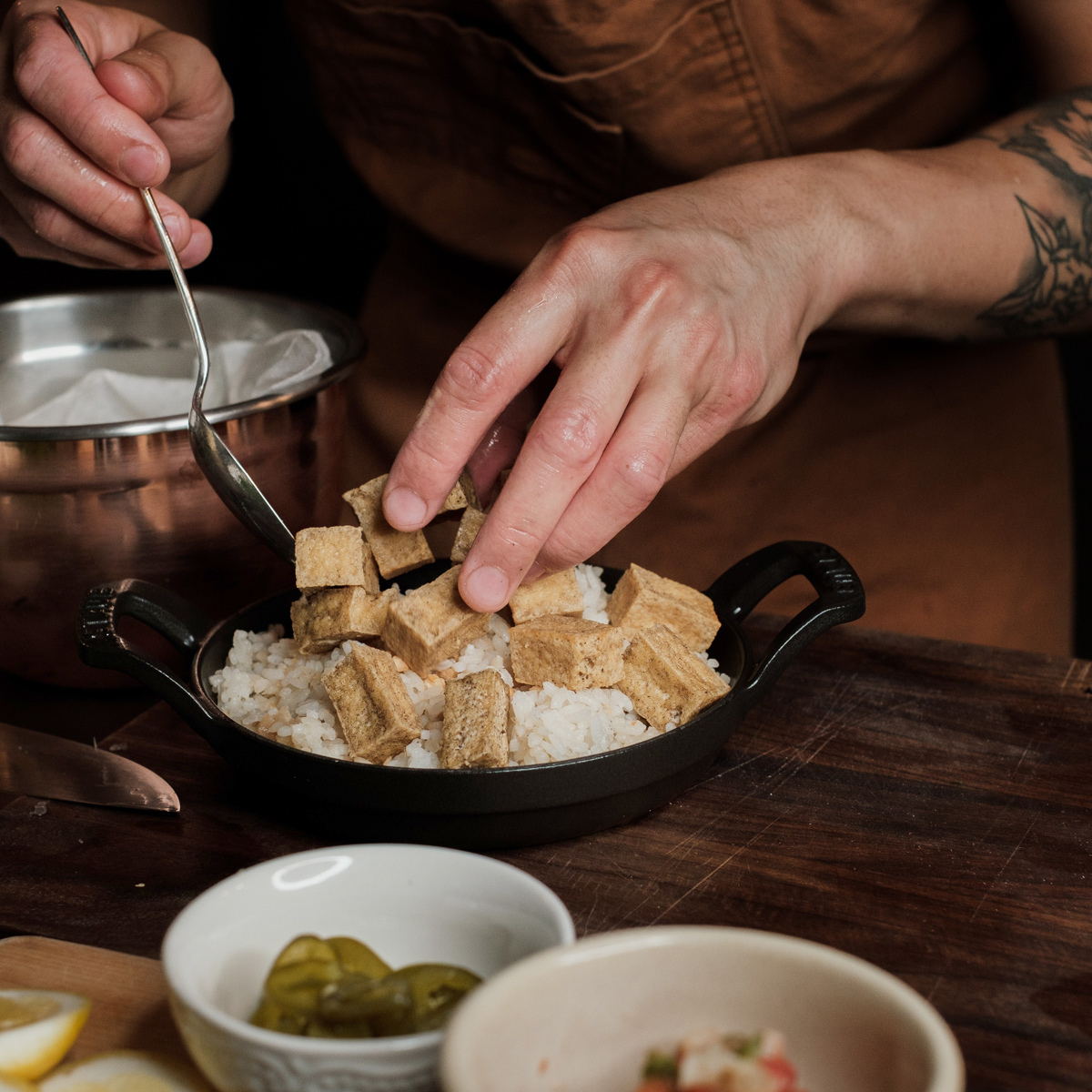 pexels
pexels
1 high protein foods such as tofu
“Tofu is one of the most protein-rich vegan foods,” says Patricia Collesa, MS RDN, Registered Dietitian. This, she says, is due to the higher protein needs of older people. With about 8 grams of protein per 100 grams, tofu can be a “helpful source to prevent the muscle breakdown process,” she says. It is possible,” he said.
“Protein foods also help you feel full and full after eating,” adds Collesa. Helps maintain bones.
For more information on how to cook with tofu, see our guide. Best preparation and cooking methodsOther high-protein vegan foods include tempeh, which contains 19 grams of protein per 100 grams, and seitan, which contains a whopping 75 grams of protein per 100 grams.
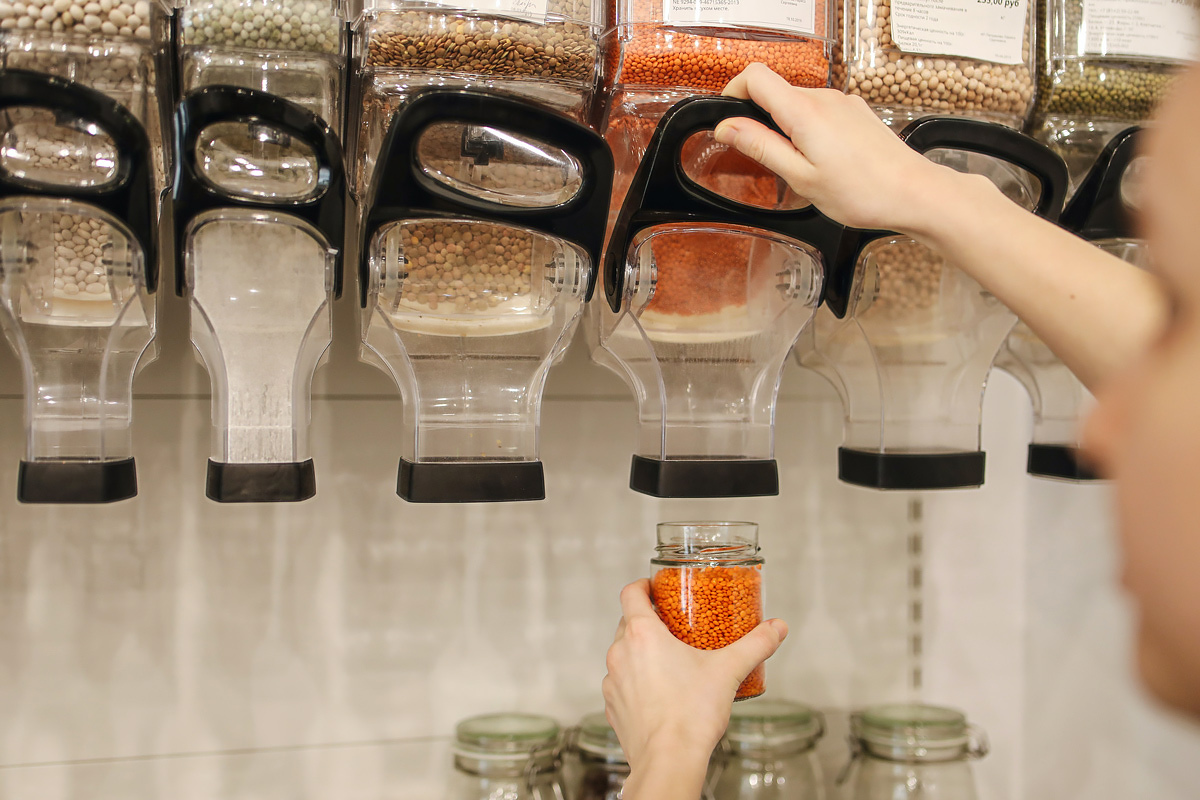 pexels
pexels
2 beans
Kolesa also says beans are a good source of protein for older people. “Combined with rice, you get a complete protein,” she explains. Kidney beans are an especially good source, with 24 grams per 100 grams.To find out which beans have the most protein, we created This handy guide From cannellini to edamame (high protein recipes too).
But protein aside, beans have other benefits too. “Forming bowel movements can be more difficult in older populations, and fiber can aid the digestive process by forming poop and helping remove waste products from the body. Another problem among older people is anemia caused by low iron levels.Beans are a rich source of iron and should be combined with vitamin C foods such as red peppers for best absorption by the body. .”
Dixon agrees that beans are a good source of nutrition for the elderly, and recommends other legumes, such as lentils and peas, which are rich in protein and vitamins. It’s packed with protein, fiber and other nutrients that are important for your health,” she says. “It can be used in a variety of recipes and can be easily incorporated into your daily diet.”
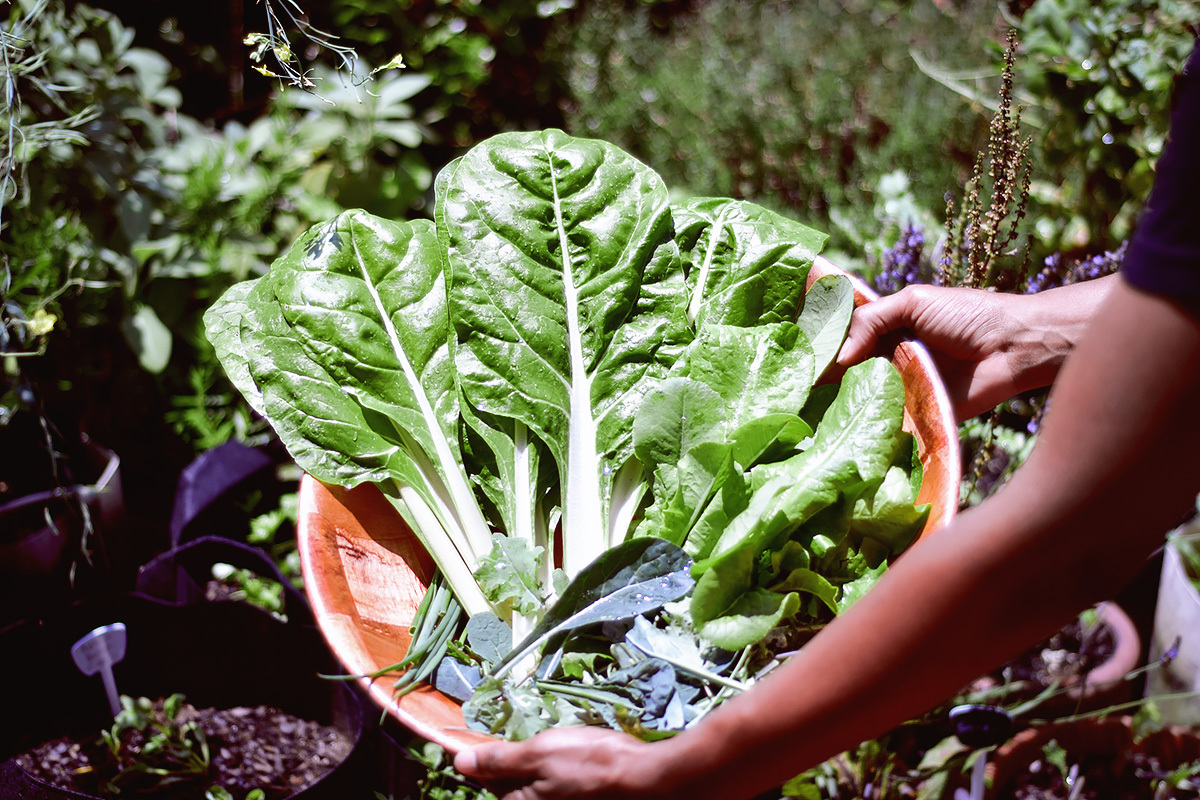 unsplash
unsplash
3 Leafy vegetables
Dixon also recommends that older people incorporate vegetables such as spinach and kale into their diets. “It also contains antioxidants that help fight free radicals, promote healthy skin, and reduce inflammation.”
Other good examples are arugula, bok choy, cabbage, watercress, and romaine lettuce.
To pack leafy greens (with the all-important beans and legumes!), try this Tangy Vegan Blackened Chickpea Saladthis Vegan spinach, chickpea and lemon pilafor this Vegan Apple Chickpea Kale Salad with Mustard Dill Dressing.
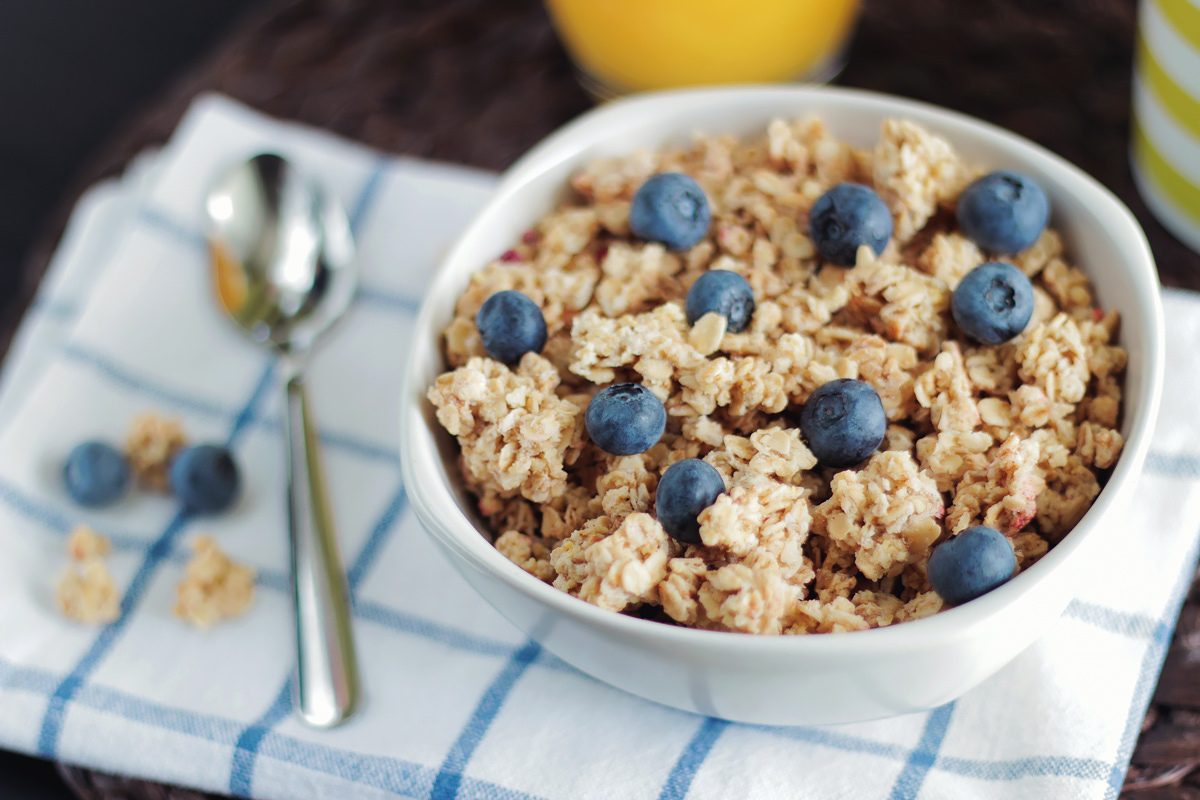 pexels
pexels
Four whole grain
Whole grains are another important part of a balanced plant-based diet. Includes foods such as brown rice, wild rice, oats, barley, durum wheat, and rye.
“Whole grains contain calcium, magnesium, potassium, iron, zinc (helps prevent anemia), selenium (helps protect the immune system), B vitamins (supports energy production), chromium (balances It provides many essential minerals and vitamins, including (helps maintain blood sugar levels), and manganese (supports bone health),” says Dixon.
See here for examples of how to enjoy whole grains in your diet Vegan garden fried ricethis Jamaican-style vegan banana oatmeal porridgeor these Healthy Vegan Strawberry Chia Oat Bite.
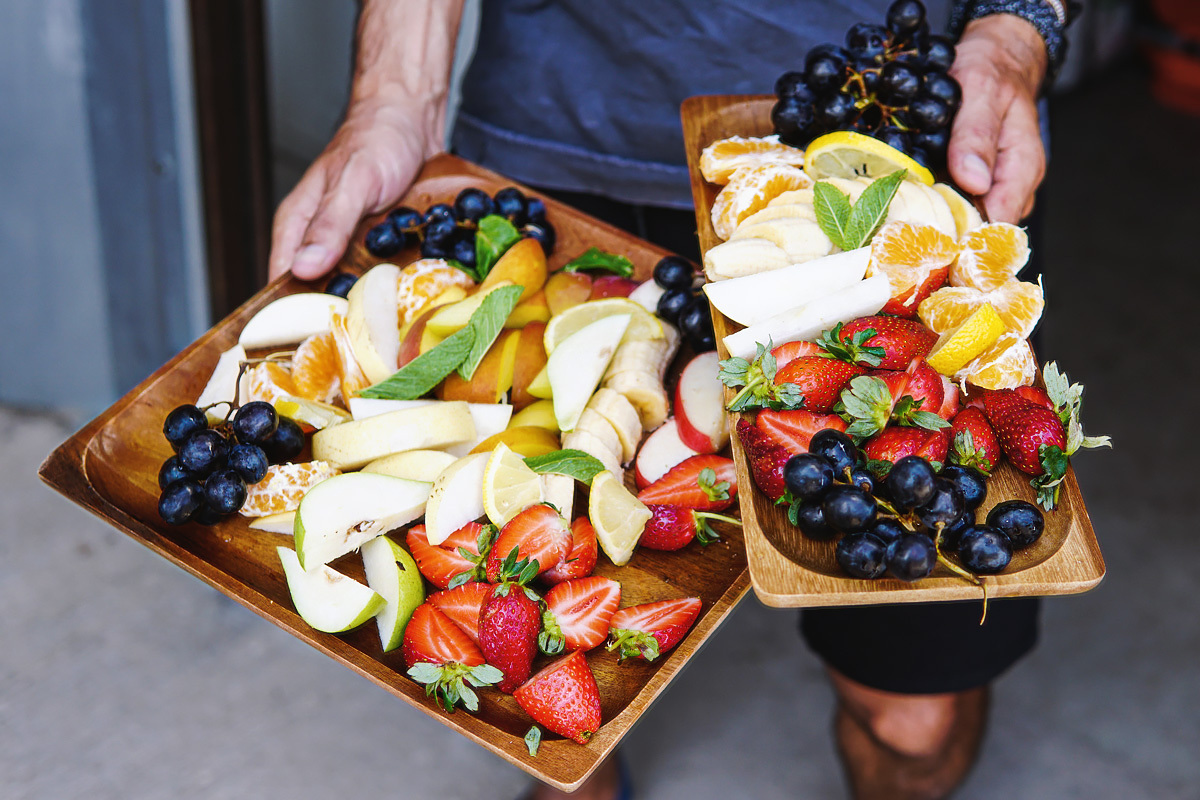 unsplash
unsplash
Five rainbow of fruits and vegetables
Other foods that can make up a wholesome, plant-based diet include berries such as bananas and strawberries, which are rich in vitamins such as vitamin B6 and vitamin C, and colorful fruits such as bell peppers, sweet potatoes, butternut squash, and beets. vegetables. , pumpkin, carrot and so on.
All of these examples have unique characteristics. For example, orange and yellow fruits and vegetables contain beta-carotene, which the body converts to vitamin A. To stay healthy at any age, especially if you’re older, you should aim very simply to do like the Blue Zone and eat the rainbow.

